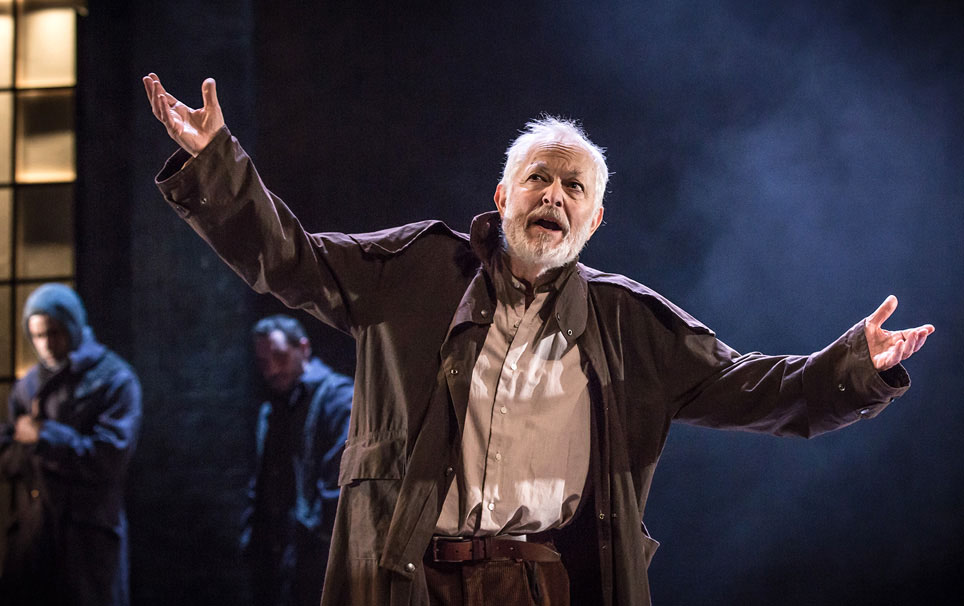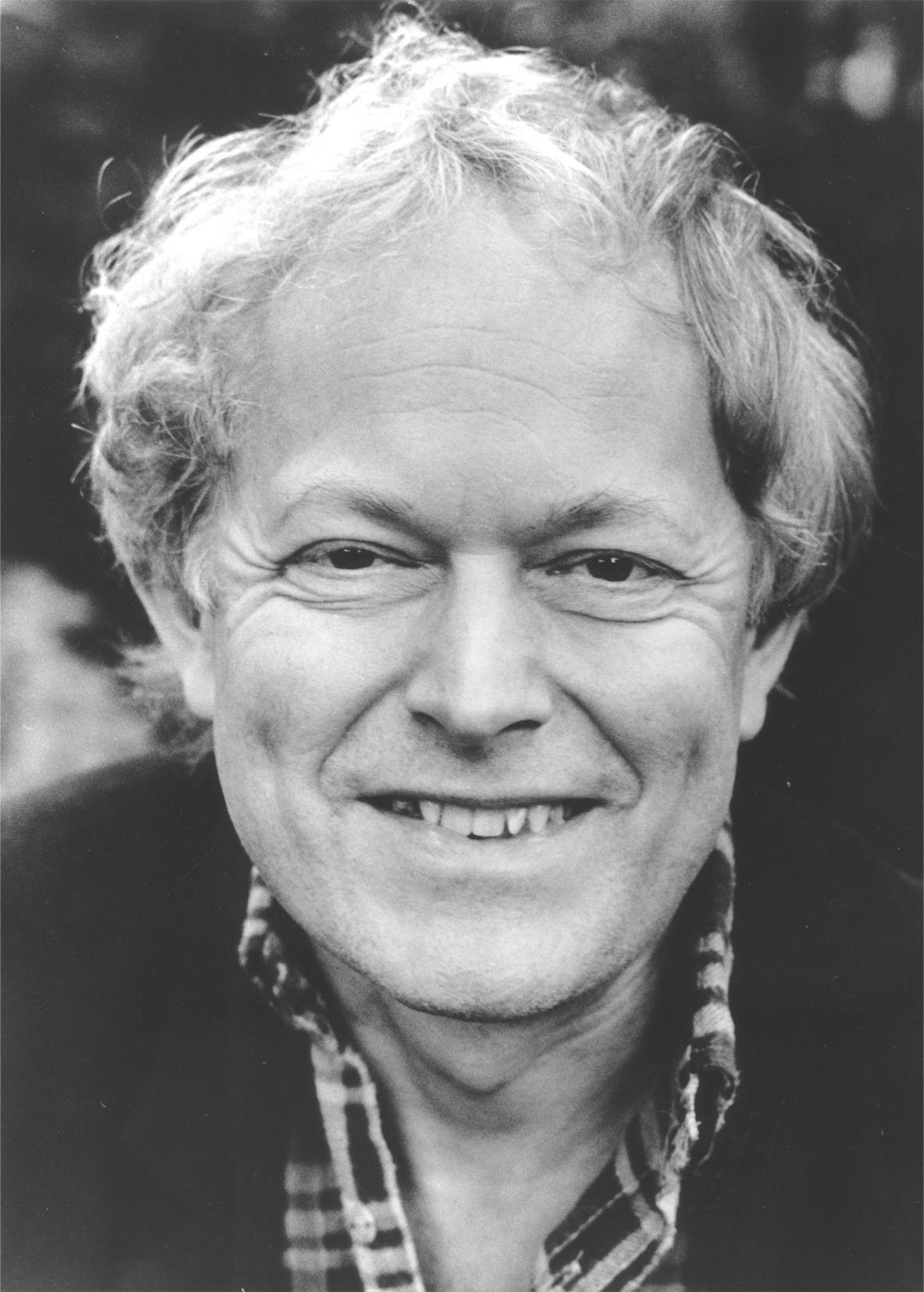
MICHAEL PENNINGTON talks to Lucy Johnson about playing King Lear.
Sitting across the table from me in the rehearsal room, with fly away white hair and a carefully unkempt beard, Michael Pennington looks absolutely the part. He is one week into his 94-date tour of King Lear, and is thriving on the energy he finds in the role.
“At 72, I might get a bit tired when I go for a walk or when I’m doing the washing up, but I simply never get tired on stage,” he beams, thrilled at the idea of the tour ahead of him.
“Doing extensive tours of full scale Shakespeare is very uncommon these days, but it’s part of a vital old tradition – one that I also upheld when I ran the English Shakespeare Company with Michael Bogdanov in the Eighties. I’m immensely grateful to ATG for letting me revive this precious tradition whereby people all over the country can see King Lear, as it should be seen – at a theatre near you. It remains for me the most exciting way of experiencing such a play.”
This brand new production comes two years after Pennington first stepped into the hallowed shoes of Lear on Broadway, to great acclaim, and he is conscious that it is rare to revisit this iconic role.
“The legend dictates that, as an actor of a ‘certain age’, you suddenly have this yearning to finally take on Lear – a narrow window when you are old enough to be convincing, but also still have the stamina,” he muses, “and you do it the once, and that sort of rounds-off your career.”
“Firstly, I’m not finished yet!” he laughs, raising his arms expressively. “And, I do realise it is really quite unusual to revisit this particular role but, after Broadway and having finally experienced the journey, the play fermented in my mind over time and I kept thinking of new things I would like to explore with it. So having the opportunity to create a completely new production, with these thoughts in mind, has been an incredible privilege. And I’m really happy with how it’s come together.”
Serendipitously it transpires that the first time Pennington trod the boards in a Shakespeare play was during April 1964, exactly coinciding with the 400th anniversary of the playwright’s birth. And now, 52 years later, on the day exactly coinciding with the 400th anniversary of the playwright’s death, he is still treading the boards, perfectly suited to this unique tour.
“It’s a strange, but wonderful coincidence – I couldn’t possibly have planned it, just like one can’t plan one’s career, which makes this all particularly special,” his eyes twinkle as he smiles. “It was two years in the making and there are so many moments I look back on and think, if it wasn’t for that thing that happened, or that person, it would never have happened. It makes me very aware of the chances and opportunities that we do or don’t embrace. And the whole company is fantastic – I couldn’t ask for a better experience.”
Watching him on stage in this production is certainly like watching him come home, bringing to the role his acute vision and years of exploration of Shakespeare’s world – despite the fact he is adamant he never really felt the classic yearning to take on the role as tradition predicts. He’s completely at-one with the character, low-key and compelling.
“So many people become fixated with how the words are spoken, rather than focussing on what is actually being meant by the words. The two can become disconnected. It’s not about speaking so much as simply understanding the human experience, and then it flows, then it comes to life – that’s what makes it as alive now as it was 400 years ago.”
I wonder how it is to step into such a powerfully emotive world, every day, and not feel drained by it.
“It might sound strange, but it’s actually enormous fun! It’s always different. At the start it’s like being on a horse that wants to throw you but, gradually, it settles into a thoroughbred that carries you through. For the audience too – it is a horrendously dark, harrowing story, of course it is, but it gives you that incredibly cathartic, cleansing experience – a true release. The astounding language is like a form of nourishment.”
And does he feel any sense of pressure in the role, knowing that it’s such a grail for so many actors and since he also brings an anticipated scholarly approach to his interpretation through his respected writing, the highs of his time at the RSC in the 70s, and his founding of the English Shakespeare Company?
“Well, if I’m any kind of scholar, I would class myself as of the spit-and-sawdust kind! And it’s certainly very flattering to be in the same room as all the greats who came before. But comparisons I find onerous – there is just so much material to work with, so much wealth, there is certainly no need to feel you are borrowing from others or that there isn’t space for you to make it your own.”
“And just think – four hundred years and we are still finding new ways to explore his work, and we must continue – even if we might sometimes feel a certain trepidation, we must find a way to make it relevant. Shakespeare was a master of making pictures out of words, his way of helping us see what is not actually there in front of us is still astonishing… he helps us understand humanity, even now. In a way, he has made us who we are. Shakespeare makes us all talented!”
Photo by Marc Brenner


